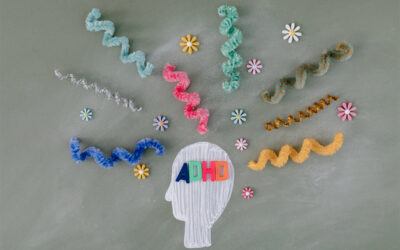Worried About Your Child? Get the Right Psychological Support Here
Comprehensive Therapy & Assessments for Children, Teens, and Young Adults in Nova Scotia.
We specialize in helping children, teens, and young adults grow beyond their struggles—not just cope with them.

Therapy & Assessments That Create Lasting Change
You’ve read the parenting books, tried different strategies, and yet still feel like your child has challenges. You’re not alone, and real solutions exist.
We know that starting therapy or seeking an assessment can feel overwhelming. You may wonder:
-
- Will therapy actually help?
- How long will it take to see progress?
- What if my child doesn’t want to talk?
These are valid concerns, and we’re here to guide you through them. Our approach is compassionate, evidence-based, and designed to create real change for children, teens, and young adults.
✔ No referral needed—get started now.
✔ Flexible options—choose in-person or virtual sessions.
✔ Specialized care—licensed psychologists with expertise in child and teen mental health.
✔ Easy online booking—schedule at your convenience.
Meet Our Experienced Psychologists
Choosing the right psychologist matters. Our licensed professionals bring years of experience helping children, teens, and young adults navigate mental health challenges. We provide:
✔ Expertise in childhood anxiety, ADHD, learning challenges, and emotional regulation.
✔ A collaborative approach—working closely with parents, caregivers, and educators.
✔ A safe, judgment-free space where young people feel seen, heard, and supported.

Personalized Therapy & Assessments for Every Stage of Growth
Therapy & Counseling
Counseling for Anxiety – Helping children, teens, and young adults develop strategies to manage stress, worry, and fear.
Counseling for Depression – Providing support to navigate feelings of sadness, hopelessness, and low motivation.
Parenting Support – Equipping parents with tools and guidance to foster a healthy and supportive home environment.
Psychological Assessments for Learning & Autism – access the right interventions, accommodations, and educational strategies to support your child’s success.
Why Families Trust Us
Thousands of families supported—you’re in good hands.
Licensed psychologists with specialized expertise.
A compassionate, personalized approach to therapy.
Convenient locations in Stellarton & Truro.
Clear communication with families, schools, and other professionals.
At North Shore Psychological Services, therapy isn’t just about coping—it’s about empowering children and young adults to thrive. Our collaborative approach ensures that every child feels understood, supported, and equipped to face life’s challenges.

Getting Started Should Be Simple
1️⃣ Find Your Need – Explore our therapy and assessment options.
2️⃣ Schedule a Consultation – Book online or contact us directly.
3️⃣ Get Matched – We’ll match you with the best psychologist to help you so you can get started fast.
Imagine your child walking into school with confidence, handling emotions with strength, and feeling empowered to take on new challenges.
Frequently Asked Questions
1. How do I know if my child needs therapy?
If your child is experiencing anxiety, mood swings, school struggles, or difficulty coping with life changes, therapy can help. Early support can prevent challenges from becoming long-term obstacles.
2. Do you offer virtual therapy?
Yes! We provide virtual therapy for children, teens, and young adults across Nova Scotia, making expert support more accessible.
3. What ages do you work with?
We specialize in therapy and assessments for children (ages 3+), teens, and young adults, along with parent support counseling.
4. What can I expect in the first session?
Your first session is all about understanding your concerns, setting goals, and creating a plan that works for your child or teen.
Take the First Step Toward Healing
Your child’s future doesn’t have to be filled with stress, worry, or self-doubt. With the right support, they can build confidence, resilience, and emotional well-being.
Articles Related to Dysgraphia and Learning Disorders
Learn more about dysgraphia and learning disorders with resources on our blog.
What are the benefits of a learning, ADHD, or behaviour evaluation for my child?
As a parent, you do everything you can to support your child, including their learning. Yet, when a teacher or the school suggests your child get “evaluated,” it can lead to uncertainties and questions. Many parents are left wondering: How will this really help? Will...
Psychological, ADHD, and Learning Assessments: What happens after your child’s testing?
Psychoeducational evaluations help you, your child, and the school better understand their learning style, emotional needs, and behavioural functioning — so they can get the right support to thrive. There are many benefits of an evaluation for a child or teen. But how...
ADHD Assessment vs Screening Tools: What Your Child Needs
When there’s a problem, it’s natural to want to solve it as quickly as possible. So if your child’s school suggests a screen for attention deficit hyperactivity disorder (ADHD), you may first seek help from your child’s pediatrician or family doctor. An ADHD screening...
Frequently Asked Questions
Do I need a professional referral for dysgraphia testing?
Your child or teen’s pediatrician, school, or mental health provider may refer your child. However, a professional referral isn’t necessary unless required by your insurance provider.
How much does a dysgraphia evaluation cost?
Dysgraphia assessments vary by purpose and service providers. However, typically, a dysgraphia evaluation for a school-aged child is between $3150- $3,375.
Each evaluation typically involves 4 to 6 hours of direct assessment time with the client and then additional time for scoring, interpretation, and report writing by the psychologist. The whole process takes approximately 15 hours. Please call for more information about fees for various assessment services.
How do I explain the dysgraphia assessment to my child?
Many children and teens find the process interesting. That said, we want your child to be motivated and relaxed on the assessment day. To help prepare your child, you can:
- Listen to their concerns
- Avoid using the word “test,” instead consider using “activities”
- Let them know that the purpose is to help them better understand themselves or what they’re experiencing
- Normalize the experience by reassuring them that other children participate in evaluations, too
The psychologist will also explain the assessment, including addressing any concerns.



